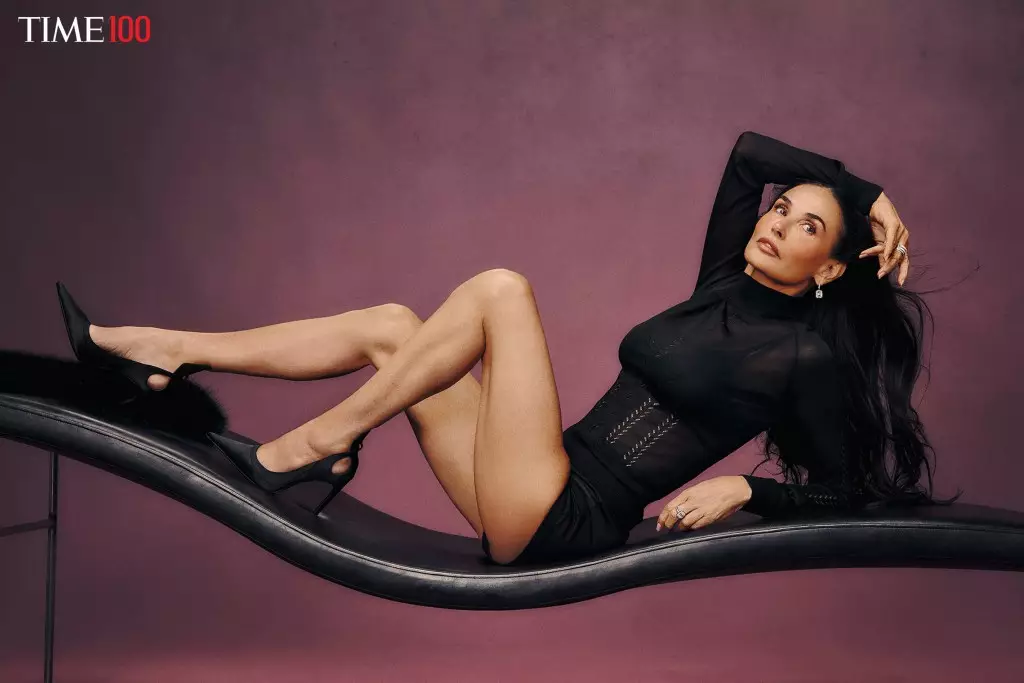Time magazine’s annual list of the 100 most influential people shines a brilliant light on those who shape the zeitgeist, particularly the entertainment industry—an arena bursting with creativity and contradictory values. This year’s line-up features stalwarts like Demi Moore, Snoop Dogg, and Scarlett Johansson, individuals whose contributions go beyond mere entertainment; they shape opinions, challenge norms, and galvanize public discourse. The inclusion of artists such as playwright Branden Jacobs-Jenkins, who tackles complex social themes, emphasizes a critical shift—we’re no longer celebrating influential figures solely for their achievements but rather for their capacity to inspire change.
This curated recognition offers us a window into the evolving landscape of societal values, wherein artists are seen as vital agents of change rather than just entertainers. The guest contributors who pen tributes engage in a dual act: they amplify the honorees’ influence while simultaneously projecting their own perspectives. In an era characterized by rapid cultural shifts, the act of positioning one artist next to another eloquently encapsulates the nuances of modern influence. Movements and narratives intertwined among these figures foster solidarity, compelling the public to reconsider the essence of influence in a world that often lacks moral clarity.
Stars and Controversies: The Modern Hall of Fame
Another element to observe is the staggering array of personalities previously heralded by Time: individuals like Donald Trump and Elon Musk populate this list, shaping it with their distinctive brands of influence—both adored and reviled. How we assess their long-term impact shapes the ongoing dialogue around what it means to be labeled ‘influential.’ The turbulent reactions to this list provoke essential questions about the metrics of cultural significance: Is notoriety a valid alternative to respect? Must we honor figures who polarize more than they unite?
This year’s lineup also extends beyond celebrity boundaries, with a diverse representation of athletes and media personalities. Icons like Serena Williams and Simone Biles not only dominate their respective fields but also exude confidence that empowers marginalized communities. Their visibility is a testament to the transformative power of representation, yet it raises the question: how much of this is performative? Are we genuinely fostering authentic change, or simply appealing to public sentiment in pursuit of social media likes?
Cultural Impact and The Responsibility of Influence
As we witness the juxtaposition of established stars with emerging voices, like Ali Wong celebrating Nikki Glaser’s comedic brilliance, we’re invited to reflect on the multi-faceted dimension of influence. The critical point isn’t just about who made the list; it’s about the cultural ramifications of these personalities wielding their power. They have the ability to challenge social paradigms, introduce pressing discussions around mental health, diversity, and ethics, all while navigating the treacherous waters of fame.
The Time100 lists are no mere accolades; they are tools of cultural accountability. In celebrating these influential figures, we must also interrogate their messages. The influence that carries power can equally damage if misused, and the public has a collective responsibility to demand sincerity from those it holds in high esteem. As we embrace this annual ritual of celebration, it’s essential to probe beneath the surface—to question not just the who, but the why and the how of influence in our cultural fabric.

Leave a Reply